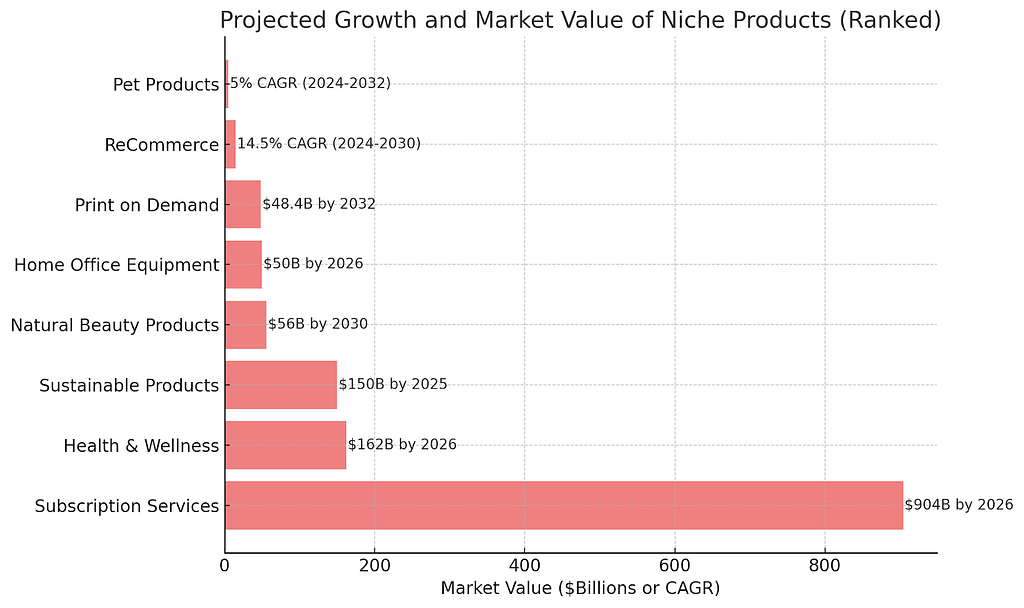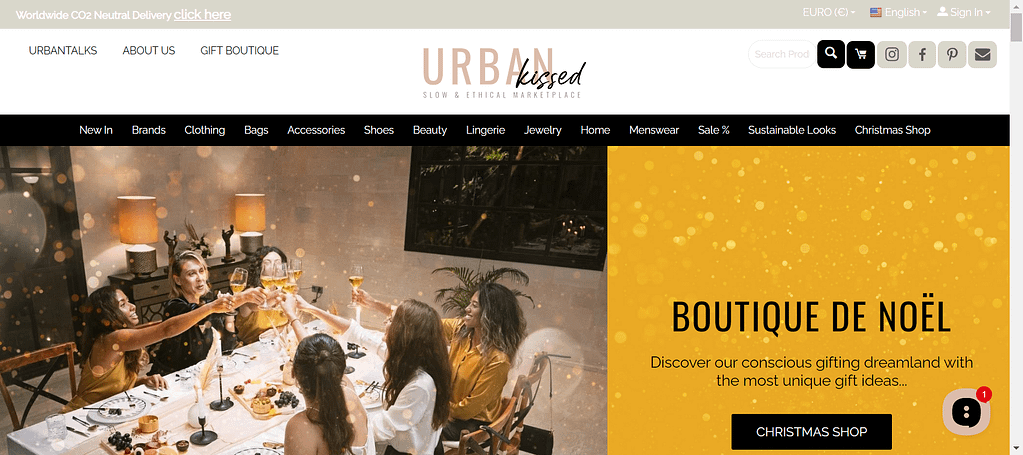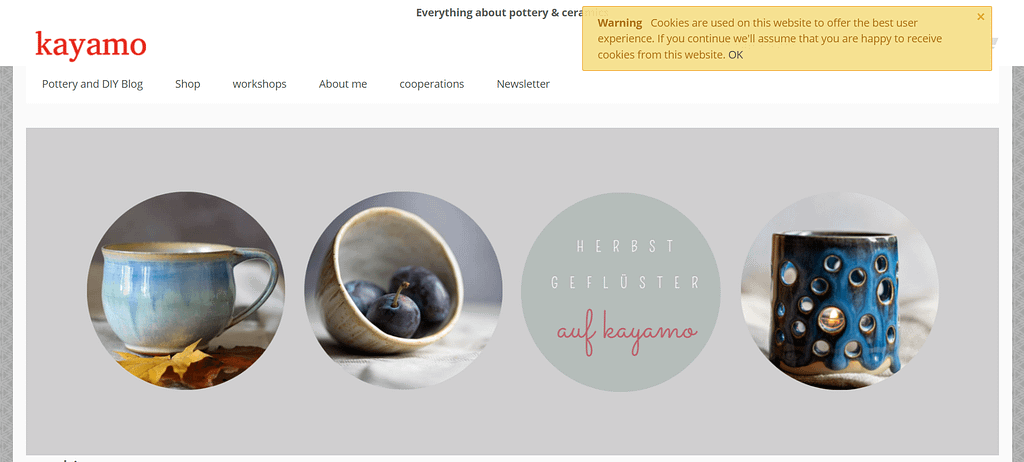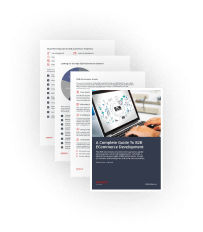Marketplaces have ascended to the pinnacle of eCommerce, eclipsing traditional online stores in viability and reach. In this light, niche marketplaces are particularly en vogue, capturing the attention of savvy entrepreneurs and consumers alike. Let’s talk about what is a niche store, what niche is trending now, how to create a compelling platform that can thrive among the titans of eCommerce.
What Are Niche Marketplaces?
A marketplace, in its broadest sense, serves as a digital bazaar where buyers can discover virtually anything. However, a niche platform zeroes in on one or a few specific product categories, creating a more tailored experience.
In essence, every product on a niche site is carefully curated within defined categories, like printing supplies or women’s accessories. This specialization streamlines the shopping journey, allowing buyers to know precisely what they’re after when they land on the platform. In contrast, larger marketplaces, with their overwhelming array of categories, often scatter attention, increasing the chances that a customer might leave empty-handed.
Niche marketplaces are swiftly carving out their space in online commerce, adeptly fulfilling consumer desires through focused and high-quality offerings. Standout examples of thriving niche marketplaces include Etsy and Airbnb, showcasing the power of specialization.
Why Sell On Niche Marketplaces? Benefits of Niche Marketplaces
During the pandemic, most buyers switched to online shopping. This means that there are more opportunities for the emergence of new marketplaces and eCommerce niches.
eCommerce experts are predicting the rapid growth of niche online platforms within a few years.
Today, at the top of the list of marketplaces platforms you can find such names as Amazon, and AliExpress. It is quite difficult to compete with such players. For the project to survive, a lot of capital will be required.
That is why more and more small platforms with a focus on certain areas appear on the market. Vendors can still maintain a storefront on large marketplaces while also launching their own platforms.
Moving websites into niches is more profitable in eCommerce: no need to compete with the “giants”, it is enough to focus on one segment. Specialized marketplaces can form more detailed offers and work with a narrow audience, which is much easier to attract.
Niche marketplaces open the door to a wealth of benefits for businesses eager to establish a unique online presence.
Here’s why this approach deserves your attention:
Direct Access to Passionate Consumers
Niche marketplaces attract customers seeking products that resonate with their interests, allowing sellers to engage meaningfully with buyers.
Less Vendor Saturation
With fewer sellers, niche platforms enable distinctiveness. For instance, a specialized outdoor gear retailer faces less competition than on a major marketplace.
Cost-Effective Marketing
These platforms naturally draw in targeted shoppers, reducing the need for extensive marketing budgets and allowing for more efficient resource allocation.
Stronger Customer Connections
Niche marketplaces foster a sense of community, enhancing brand loyalty and encouraging repeat business.
Built-In Trust
Rigorous vetting processes ensure product quality, cultivating consumer trust—especially valuable for new brands.
Premium Pricing Opportunities
Specialized products often command higher prices, as consumers are willing to invest more in items that meet their unique needs.
Streamlined Operations
Focusing on a narrower product range simplifies inventory management, reduces overhead costs, and boosts efficiency.
Expertise in the Industry
The model of the store speaks for itself. A specialized marketplace focuses on only one direction. As a result, all employees have expertise in this area and can easily guide the buyer and help with the choice.
Improved Service
Niche marketplaces better understand what their target audience needs. Big stores have one big problem — they try to please everyone at once. Personalization in the service is lost, and customer satisfaction decreases. It is the opposite of small marketplaces. The owners implement custom IT solutions, and develop support and logistics within the project, taking into account the needs of their audience.
Quality is above all
In specialized stores, the turnover of goods is much less. But in this case, it works as an advantage, allowing you to meet the needs of customers and provide a high-quality service.
Top Selling eCommerce Niches in 2024 and Ideas for Niche Marketplaces in 2024-2025

As of 2024, several eCommerce niches are demonstrating significant growth potential. Here are some of the most promising areas:
Pet Products
The pet industry continues to thrive, with a focus on organic and artisanal pet food. This segment is projected to grow at a CAGR of 5% from 2024 to 2032 as pet owners increasingly seek healthier options for their pets (Auretelabs). Additionally, wellness products for pets, including supplements and CBD oils, are gaining traction (Simicart). A marketplace that specializes in pet products, from food and treats to toys and accessories, could be a hit.
ReCommerce (Resale Market)
ReCommerce involves selling pre-owned goods and is experiencing a surge in popularity, especially among environmentally conscious consumers. The U.S. reCommerce market is anticipated to grow at a CAGR of about 14.5% from 2024 to 2030 (Auretelabs, Simicart). This niche includes luxury items, clothing, electronics, and more.
Print on Demand (POD)
Print-on-demand software allows businesses to offer customized products without holding inventory. The market is projected to reach $48.4 billion by 2032, growing at a CAGR of 22.7% (Auretelabs). Popular products include personalized apparel and home decor items. In our practice, there was a case of a POD puzzles.
Home Office Equipment
With the rise of remote work, there is a sustained demand for home office supplies such as ergonomic furniture and tech accessories (Shipbob, Clickpost). This niche has proven resilient since the onset of the pandemic.
Natural Beauty Products
The natural beauty sector is evolving towards cruelty-free and chemical-free products, with a projected market value of $56 billion by 2030 (Clickpost). Consumers are increasingly drawn to brands that prioritize health-conscious formulations.
Sustainable and Eco-Friendly Products
This niche encompasses a wide range of items, from reusable household goods to sustainable fashion. The global market for eco-friendly products is expected to reach $150 billion by 2025, driven by consumer demand for transparency and sustainability in production practices (Auretelabs, Simicart). Products like compostable accessories and solar energy devices are particularly popular (Auretelabs).
As more and more people become aware of the impact their purchases have on the environment, there’s a growing demand for eco-friendly home products. A niche-specific marketplace that specializes in such products could be very successful.
Similar to the eco-friendly home products’ marketplace, sustainable fashion marketplace could be very successful in 2025. Consumers are looking for clothing that is made with sustainable materials and produced in an ethical manner.
Health and Wellness
The health and wellness sector is expanding rapidly, with a projected market growth of 9.20%, reaching approximately $162 billion by 2026 (Simicart). This includes organic foods, supplements, and fitness-related products, catering to the increasing consumer focus on health (Clickpost). With the rise of veganism and vegetarianism, there’s a growing market for plant-based food products. A marketplace that focuses solely on selling such products could be very popular.
Subscription Services
Subscription models have gained immense popularity due to their convenience and potential for recurring revenue. This niche encompasses everything from meal kits to beauty boxes, with the subscription market expected to reach $904 billion by 2026 (Clickpost, Teaminindia). Subscription boxes have become increasingly popular in recent years, and a marketplace that offers a variety of subscription box options could be a convenient choice for shoppers who want to receive a regular delivery of products they love. This is one of the promising niche eCommerce ideas to explore.
Artesian Craft Marketplace
People are increasingly looking for unique, handmade items that they can’t find in big-box stores. A marketplace that specializes in artisanal crafts and handmade goods could cater to this growing demand.
Personalized Gift Marketplace
Everyone loves receiving a gift that’s been personalized just for them. A marketplace that offers a wide range of personalized gift options could be a popular choice for shoppers.
Luxury Goods Marketplace
There will always be a market for luxury goods, and a marketplace that sells high-end products could be successful in 2025.
Local Products’ Marketplace
Consumers are becoming more interested in supporting small, local businesses. A marketplace that focuses on selling products made by local artisans, farmers, and other small businesses could tap into this trend.
These niches not only reflect current consumer trends, but also present opportunities for entrepreneurs looking to enter the eCommerce space.
Explore more niches here: TOP 10 Marketplace Ideas: How to Find a great idea in 2024
Trends In Market Of Niche Marketplaces
The market is now full of options, which means that the buyer can go to a competitor at any time for some reason: ease of payment, better logistics service, and wider assortment. A savvy niche marketplace operator should follow the trends to stay competitive. We gathered the latest trends in the niche eCommerce:
Tailored Experiences
Shoppers crave personalization. Niche sites are stepping up with custom recommendations and products.
Get more tips about personalization from: Top Customer Retention Strategies for an eCommerce Website
Sustainability Matters
Eco-friendly options are in demand. Marketplaces showcasing sustainable practices are winning over conscious consumers.
Learn more about sustainable commerce options from our article: Eco-Friendly Online Retail: What You Need to Know About Sustainable eCommerce
Community Vibes
Building connections is key. Niche platforms are creating spaces for enthusiasts to engage, fostering loyalty.
Learn more about community building from: 10 Tips to Build a Strong Community Around Your eCommerce Brand
Subscription Growth
Regular deliveries of curated products are gaining traction, enhancing customer retention and steady income for sellers.
Read more in: Do You Need a Subscription Service in Your eCommerce Website?
Mobile Optimization
With more shopping on phones, niche marketplaces are ensuring seamless mobile experiences. Learn more about mobile optimization from our article: Mobile Optimization for Online Stores
Social Shopping
Integrating social media features allows users to shop and share finds effortlessly.
Get inspired by the example of our article: How to Implement an Omnichannel Approach in the Furniture Business?
Flexible Payments
Offering diverse payment options, including digital wallets and crypto, makes transactions easier for everyone.
Read more in our article: How Can You Accept Crypto Payments in Your Online Store or Marketplace
Authenticity
Consumers are prioritizing authenticity. Niche marketplaces are focusing on genuine products and transparent practices.
Get more tips on adding authenticity from our article: 10 Ways to Build Trust in eCommerce
How Do You Discover Your Niche For An Online Marketplace?
Identifying the right niche combines your passions with market needs. Here’s a concise approach:
Reflect on Interests and Skills
Consider what you love and excel at. Your passions can guide you to a fulfilling niche.
Research Market Demand
Use tools to gauge interest:
- Trending Products: Check Shopify and eBay for popular items.
- Keyword Analysis: Utilize JungleScout or Helium 10 for Amazon trends.
- Google Trends: Search your interests for related topics.
Analyze Competition
Understand the competitive environment:
- Identify Competitors: Evaluate existing businesses to find gaps.
- Market Saturation: Balance competition to avoid oversaturation.
Engage with Communities
Join relevant online groups to learn about customer needs through social media and forums.
Conduct Customer Discovery
Create a positioning statement to clarify your target audience and value proposition.
Read more in: Understanding Discovery Sessions: A Comprehensive Guide.
Test Your Ideas
Launch a small project or landing page to gauge interest, using crowdfunding or content creation to refine your offerings.
How To Compete With Industry Giants And Fight Cart Abandonment?
- Expand The Range Of Products. In this case, you do not need to increase the list of products, but expand the number of options within a specific category. This will allow the buyers to choose their segment in search of a product: find a suitable price, manufacturer, and additional details. For instance, on the marketplace of household appliances or in a niche store, you can offer 10 options of vacuum cleaners instead of 5. And make sure all of them have different prices, functionality sets, etc. That is, the user will be able to find exactly the one that will meet all his needs.
- Improve Business Processes And Automate Them. Optimize marketplace processes to minimize the use of human resources. Key stages where users expect the platform to work quickly: checkout, payment method, and delivery. Keep these processes simple, with few steps to complete.
- Sell The Product Along With The Service. Let’s say you sell air conditioners. Instead of offering customers just equipment, offer a service in a package — installation of an air conditioner. This way, a customer gets more value.
How To Launch A Niche Marketplace In 2025?
How to start a niche marketplace development? The launch of an industry platform can be divided into several key steps.
Step 1. Market analysis and niche selection
As with any business venture, market analysis is essential to explore opportunities and threats. During the research, it is important to understand not only the current situation in the market but also the level of competition and the profile of a potential customer in the selected segment.
Competitor analysis will help you find out what marketing tools to use and how to meet customer needs. Consider implementing an Amazon product scraper (see, e.g., ScraperAPI on the best scraping tools) to extract valuable market data such as bestselling items, price ranges, and customer review sentiments, giving you deeper insights into your potential niche. To learn more about the pains of buyers, use questionnaires and engage with audiences in relevant communities.
The more information you gather at this stage, the easier it will be for you to plan your next steps.
Step 2. Determining the type of marketplace and monetization
The next step is to determine the platform type, which can be categorized into three main interaction models:
Business to Consumer: B2C is the most common format, where sales occur between a store and individual consumers. Examples include Etsy, which connects artisans with buyers, and Blue Apron, offering meal kits directly to consumers.
Business to Business: B2B niches cater to businesses by providing goods and services to entrepreneurs. Notable examples are Alibaba, which connects manufacturers with businesses, and ThomasNet, a platform for industrial suppliers.
Consumer to Consumer: C2C marketplaces facilitate transactions between individuals on equal terms. eBay is a prime example, allowing users to buy and sell niche items, while Poshmark focuses on fashion sales among consumers.
Once you’ve identified the marketplace type, select a monetization model. Options include charging a fee for each transaction, implementing subscriptions for vendors to list a certain number of products, or utilizing paid ads, which are more common on C2C platforms. Additionally, consider other monetization strategies, such as placing ads on your platform.
Step 3. Website infrastructure and basic functionality for interacting with sellers and buyers
When developing a niche marketplace, an important task will be to attract sellers. What to consider?
Work out the terms of cooperation and make a competent commercial offer. That is why at the previous stages it is necessary to think over the format and monetization model to reach the sellers with a ready-made structure and a complete offer.
Next, consider the basic functionality of the platform. This includes a personal account, the ability to upload multiple goods at once, integration with payment and delivery services, dashboards for statistics and analytics.
The second user of the platform is a buyer, who must also have convenient access to all the functionality of the site. First, to the search engine. The product your buyers are searching for should be shown by relevance (tags, titles, categories).
Clear navigation is a must-have for any marketplace. The easier it is for the user to navigate and find the right products on the site, the more they will stay there and place more orders. Pay attention to the ordering process. A convenient shopping cart, the ability to add products to “favorites”, and an order tracking system — all are necessary to improve the user experience.
No need to immediately try to create the perfect site structure. Start with a basic set of features and test them out.
Step 4. MVP development
Speaking of testing, we are approaching the development of MVP (Minimum Viable Product). Creating an MVP is a quick way to test an idea and collect real feedback from users. The first version can be built on ready-made solutions, for example, CS-Cart. You will be able to easily set out-of-the-box functionality without the need to modify it a lot. A working marketplace can be launched within two months.
MVP allows you to experiment and test niche marketplace ideas without much investment. The feedback you receive from users will help you plan improvements and create a product that meets the requirements and needs of your target audience.
Get inspired from: Best MVP Examples in eCommerce and Stories Behind Them
Step 5. Promotion and expansion of the audience
You should start attracting sellers even before the launch of the first product version. But promoting to the actual buyers is better when you already have a product to present. Use different communication channels: targeted advertising, content marketing, and creating landing pages.
Since this is a niche platform, the use of thematic communities in social networks will be an effective tool. In addition to providing products, specialized marketplaces need to show their expertise in the chosen field. Start blogging and sharing useful information, and don’t forget about competent support.
Features of eCommerce Niche Marketplaces
Here are the key features that define successful eCommerce niche marketplaces:
Targeted Product Listings
Focused on specific categories, niche marketplaces offer curated listings that help customers find exactly what they need without distractions.
High-Quality Product Pages
Detailed pages with high-resolution images, thorough descriptions, and customer reviews build trust and aid informed purchasing decisions.
Advanced Search Functionality
Effective search features, often powered by AI, enhance user experience by providing personalized results based on behavior and preferences.
Seamless Checkout Experience
A smooth shopping cart with multiple payment options and an easy checkout process minimizes cart abandonment.
Community Engagement
Features like forums, reviews, and social sharing foster a sense of community, connecting users to the marketplace and each other.
Personalized Recommendations
Data analytics enable tailored product suggestions, improving the shopping experience and boosting conversion rates.
Mobile Optimization
Responsive design ensures a smooth experience for users, whether they’re on desktop or mobile devices.
Proactive Customer Support
Exceptional service, including live chat and easy returns, enhances customer satisfaction and loyalty.
Marketing Tools for Sellers
Niche marketplaces equip sellers with promotional tools, like banners and analytics, to effectively market their products.
Top Five Niche Marketplaces
Here are the top five niche marketplaces that stand out in various sectors:
1. Etsy

Etsy is the premier platform for handmade, vintage items, and craft supplies. It caters specifically to artisans and crafters, allowing them to sell unique products ranging from custom jewelry to printable art. Etsy’s strong community focus and user-friendly tools for sellers make it a go-to choice for creative entrepreneurs looking to reach a dedicated audience interested in artisanal goods.
2. Chewy

Chewy specializes in pet products, offering a wide range of pet food, treats, and health supplies. This marketplace has gained popularity due to its user-friendly interface and commitment to customer service, making it a trusted resource for pet owners. Chewy also innovates by connecting veterinarians with clients for prescriptions, enhancing its appeal.
3. Fiverr

Fiverr connects freelancers with clients seeking various services, from graphic design to digital marketing. This platform allows service providers to showcase their skills and attract clients in a competitive market. Fiverr’s structured system ensures secure transactions and fosters trust between buyers and sellers.
4. Airbnb

Initially focused on connecting travelers with hosts offering spare rooms, Airbnb has evolved into a comprehensive platform for short-term rentals worldwide. It allows property owners to list accommodations while providing travelers with diverse lodging options. Airbnb’s model empowers hosts to set their pricing and terms, making it a flexible choice for both parties.
5. Reverb

Reverb is dedicated to musicians, providing a marketplace for buying and selling musical instruments and gear. This platform caters specifically to the music community, offering detailed listings and fostering connections among musicians. Reverb’s niche focus makes it easier for sellers to reach passionate buyers looking for specific instruments or equipment.
These marketplaces exemplify how focusing on specific niches can create successful platforms that meet targeted consumer needs while fostering strong community engagement.
Simtech Development Niche Projects
Our company often encounters requests from niche online marketplaces. Here are some works from our portfolio.
Case Study: Urbankissed—Where Sustainability Meets Style

Picture this: an online marketplace for eco-conscious fashion lovers, where over 100 sustainable brands come together in a vibrant tapestry of style and responsibility. Welcome to Urbankissed, the brainchild of Swiss visionary Sophie Brunner, launched in 2017 as a beacon for those who want to shop with purpose.
Sophie had a dream—a digital space that didn’t just sell clothes but told a story of sustainability and ethics. Enter Simtech Development, ready to turn that dream into reality. The mission? To craft an eCommerce platform that was as unique as the brands it would host, built on Multi-Vendor software that ticked all the boxes: easy vendor accounts, a slick admin panel, and the blog page.
We didn’t just build a site; we sculpted an experience. The design? Intuitive and inviting, making it easy for shoppers to lose themselves in a world of sustainable fashion. And because we’re all about growth, we made sure that adding new features would be as smooth as a well-tailored garment.
In the end, our collaboration didn’t just create a website; it birthed a unique online ecosystem where sustainability shines and style thrives. Urbankissed is not just a marketplace; it’s a movement, and we’re proud to have played a part in its journey.
Case Study: Kayamo—Crafting Digital Elegance in Jewelry

Imagine an online marketplace where every piece of jewelry tells a story, where craftsmanship meets creativity—welcome to Kayamo, a digital hub of custom-made jewelry and artisanal handicrafts from Germany. The visionary behind this venture sought more than just a website; they craved a digital masterpiece that mirrored the uniqueness of their vendors’ creations. The owner addressed Simtech Development, armed with innovation and a passion for transformation.
We didn’t just migrate the site to cloud hosting! Performance soared, reliability became a given, and the website transformed into a beacon of speed and efficiency. Our design refined the user interface to create a visual delight that beckoned visitors to explore. With a custom mobile theme, we infused Kayamo’s online presence with personality, ensuring it resonated with the brand’s distinct flair.
We didn’t stop at aesthetics. Administrators got the power to choose payment methods with ease, and customers found themselves enjoying a smoother, more flexible checkout experience.
In this partnership, Simtech Development didn’t just tackle technical challenges; we created a personalized digital experience that reflects Kayamo’s commitment to exquisite craftsmanship.
Case Study: Elevating The Real Luxury—A Marketplace for Distinction

In a world where luxury reigns supreme, The Real Luxury, a Slovenian gem, found itself at a crossroads. With exquisite treasures like Rolex watches and Hermès bags waiting to dazzle discerning shoppers, the stage was set for a transformation. As the Milan conference approached, the urgency to elevate their online marketplace became palpable.
In addition to the website upgrade; we improved the customer experience. Our team dove deep into customization, conducting a thorough audit that unveiled opportunities for improvement. With a fresh design that whispered elegance—smaller banners, sleek fonts, and a menu that showcased luxury at a glance—we turned the ordinary into the extraordinary. The mobile experience was reimagined, ensuring that every swipe felt like a stroll through a high-end boutique.
We equipped The Real Luxury’s team with powerful tools to curate their online gallery effortlessly. Now, they could update banners and product displays with the grace of a master artisan. With Simtech Development’s touch, The Real Luxury is ready to dazzle in Milan and beyond.
Conclusion
In summary, online niche future is promising: from eco-friendly sustainable fashion products to personalized jewelry and luxury goods. The key is to choose a niche in eCommerce that is underserved and offers products that meet the unique needs and interests of consumers in those markets. With the right strategy and execution, a niche platform can be a lucrative business opportunity.
Today, to launch your industry-specific marketplace, you can turn to ready-made solutions and present the first version of the platform after a few months. Simtech Development is ready to discuss your case and help you launch your online business.

